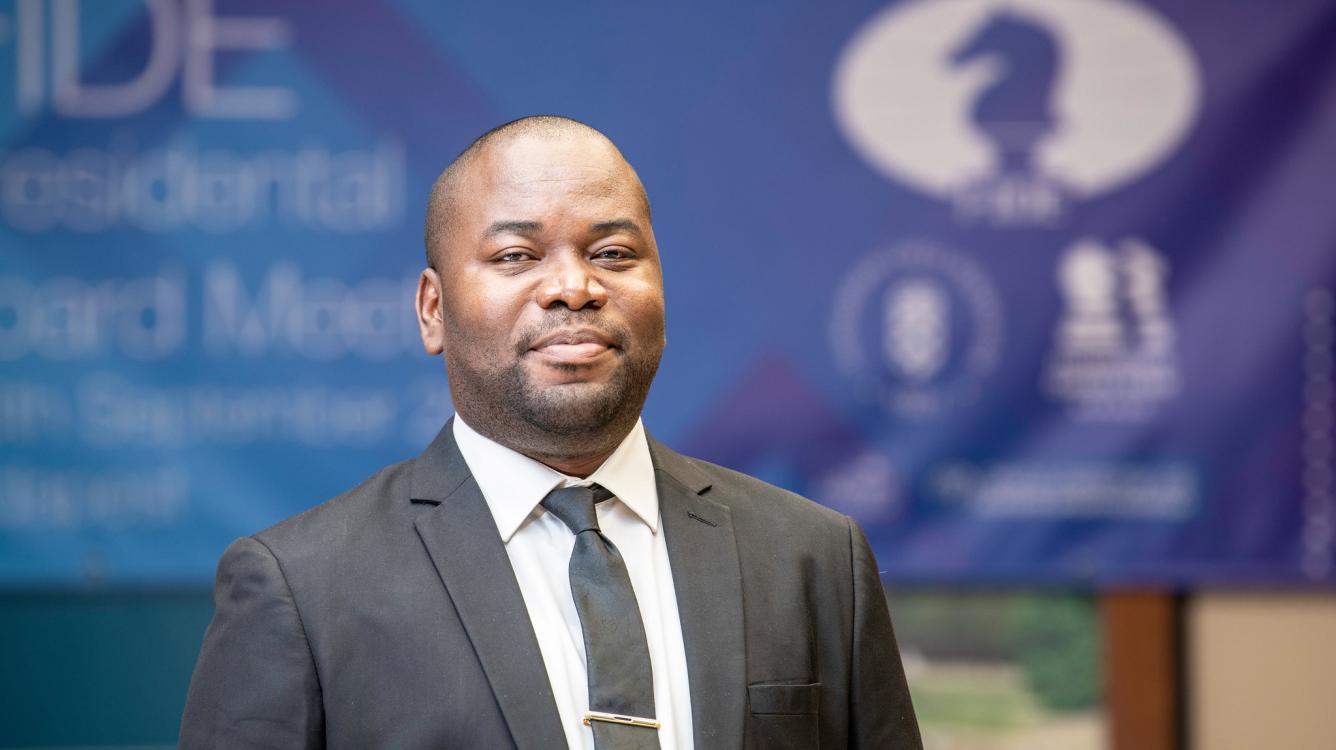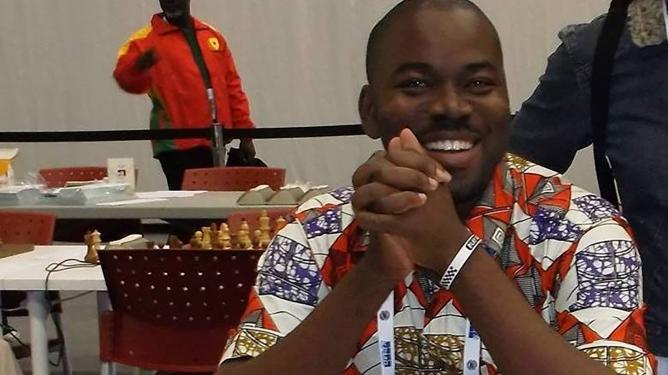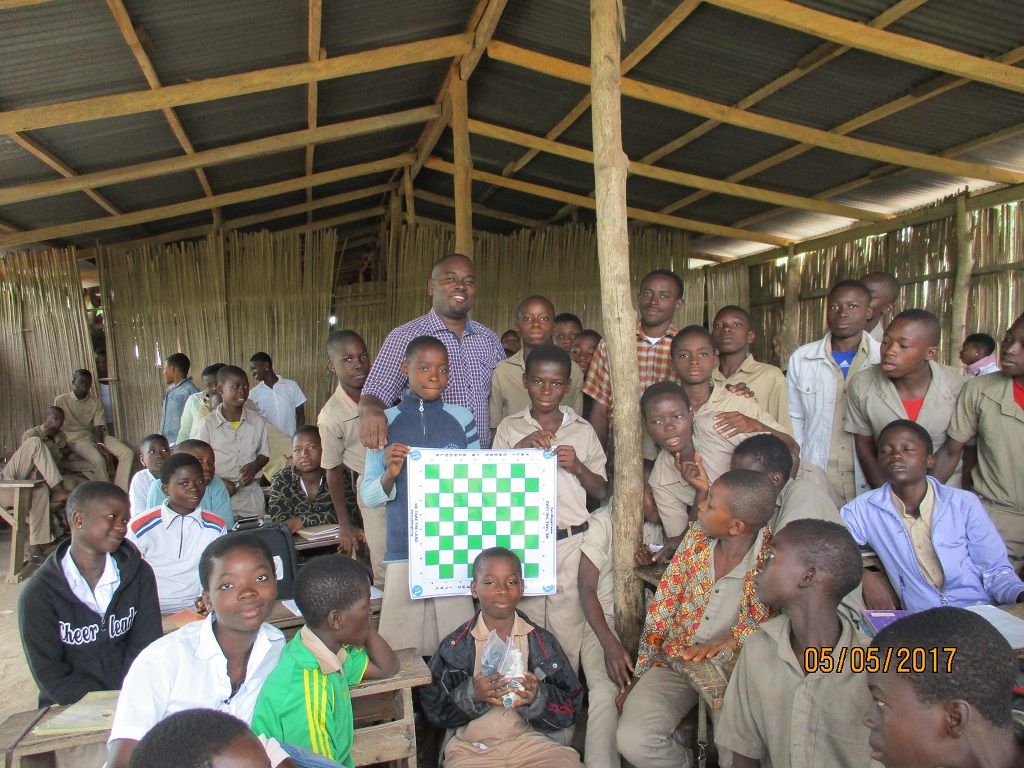
Fumey's Presidential Bid: 'I Can't Imagine Dvorkovich Is Re-Elected'
FIDE’s former Secretary General CM Enyonam Sewa Fumey from Togo has joined the presidential race for the 2022 elections of the international chess federation. The elections will take place in Chennai, India, on August 7 during this year's FIDE General Assembly.
Fumey's bid is based on two simple premises: distancing the organization from the influence of Russia in response to the brutal invasion of Ukraine and fostering a grassroots approach to chess development.
Can A Russian Run FIDE?
The incumbent President Arkady Dvorkovich is regarded by many as an enlightened leader and he openly condemned the war. However, his past as Deputy Prime Minister of Russia has encountered criticism, with the Ukrainian Chess Federation reportedly accusing him of double-dealing with the Kremlin in the wake of the invasion.
Fumey's mission statement speaks of developing "a more sensible approach to the issue of sport and politics." In other words, avoiding the body’s dependency on global politics.
Chess.com asked him if this was a direct reference to the conflict in Ukraine.
"We are not seeing [this] in terms of blocs," Fumey explained during a video conference interview, joined by Deputy Presidential hopeful FM Stuart Fancy, a resident of Papua New Guinea.

"We're just realizing that at the moment we can say that FIDE is too much Russian, which makes any problem of Russia, FIDE's problem," said Fumey. He elaborated on his choice to compete against Dvorkovich, a decision which may come across as a well-timed political move, by remarking that his defiance of a polarized approach to world chess dates back to 2018, when he first came into office. The former FIDE Secretary General, also a member of the Social Commission, observes that FIDE remains "too concentrated in one [direction]. I kept winning on this issue, and now I'm right because Russia is in trouble and FIDE in jeopardy."
... at the moment we can say that FIDE is too much Russian, which makes any problem of Russia FIDE's problem.
Fumey went on to say that he can't imagine Dvorkovich is re-elected: "It's clear that FIDE is harmed by him being the first leader, not because of him, but because of the situation. So I can't imagine with this situation that he's re-elected."
"Maybe, Mr. President did well but still being Russian is a problem with him. It's not his fault to be Russian." So you're saying that the mere presence of him will scare sponsors away? "Yes. In this moment"
A Worldwide Organization
For many developing federations, the prospect of a president from Africa represents a glimpse of hope toward the development of the game outside traditional chess-playing countries and a new approach to global funding. Africa alone accounts for 47 federations (and as many votes) out of the 201 member federations of FIDE.
In wealthier countries, however, choosing a president from a developing country might appear like a leap in the dark.
"It's not a revolution," said Fumey. "We are coming in a very collaborative spirit. Yes, we have too many Russians. Yes, we have too many Europeans. Okay, let's add some from Oceania, some from America, to balance the whole thing to make it more of a world organization."
It's not a revolution. We are coming in a very collaborative spirit.
But how would this affect top tournaments and hard-earned sponsorship deals?
Fumey does not foresee any drastic changes, especially since "there are not many countries that have the necessary resources to host a world-class event." And yet, he feels: "We can do better together. We are not opposing you, but we are bringing ideas to you. We also have something to offer; we can collaborate and we can also do things. So let's do it together."

Fumey admitted that Dvorkovich succeeded in bringing other sponsorships instead of only concentrating on the Russian government's money, but added: "But still, being Russian is a problem with him. It's not his fault to be Russian."
Further on the issue, Fancy referred to the French multinational company Total being involved in a gas project in Papua New Guinea at the moment. "We deal with them on a day-to-day basis. And they were very impressed that Papua New Guinea has a chess federation … But, of course, for some of those big multinationals, having a Russian president is a bit of a problem, you know.”
A Grassroots Approach
As a player, international arbiter, and former president of the Togolese chess federation, Fumey feels that the biggest hindrance to FIDE’s growth is its top-down methodology. In his view, the current leadership "doesn't share the same spirit of development" and "doesn’t understand what is poverty." He believes he is in a position to change this:
"I am a nobody, so I tend to understand better how to help people, how to accompany them in doing things, because to just throw money to people, and to come back later for them to account ... It doesn't work that way.
To just throw money to people, and to come back later for them to account ... It doesn't work that way.
In practical terms, Fumey promised to fight corruption with cooperative governance and a "soft hierarchy." At least four African federations, in the past 10 years, encountered serious leadership disputes and involved the FIDE Constitutional Commission in endless court battles.
The Togolese arbiter aims to expand social projects promoting equal opportunities for players and all other professions connected with chess. He says that in the top circuit "they never invite arbiters from Africa, arbiters from Asia. No, we should mix up things."
Once elected, would he feel the responsibility not to let down the dream of an African chess renaissance? "The [federations] also have a huge responsibility," Fumey replied to this question, "because many of them could benefit from occasions to stand up and they just wasted them."

And how would first-world countries benefit from his leadership? "Why should Italy vote for us? Because Italy loves chess. If Italy wants us to be worldwide and not feel all alone in some bubble … I think all players in those federations want chess to be everywhere.”
Fumey believes that a change can happen and that the time is now: "From what I'm feeling, the world is reviving ... People have discovered the importance of social relationships, of how precious life is, because we passed through a difficult period. Now we are seeing the end of the tunnel. And I think it's all positive, and we will restart and in a better way."
Can he be the driver of this change? "In FIDE, yes," he concluded.
Corrections: this article erroneously stated that Mr Fumey is a Vice President and Mr Fancy is running for Vice Presidency. Mr Fumey is a former Secretary General and Mr Fancy is running to be the Deputy President.

